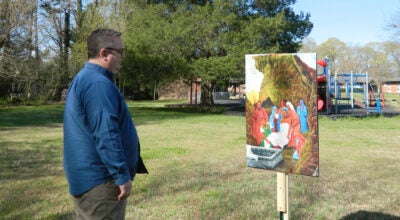Dr. George B. Jackson Column: Time to smell coffee
Published 12:00 am Friday, January 12, 2007
By Dr. George B. Jackson
It’s a sweltering hot day in late August 1963. A vast audience of demonstrators from the four corners of our nation have gathered at the Lincoln Memorial in Washington, D.C. They are black and white. They are young and old. They are rich and poor. They are a cross-section or a small slice of America. They have been mobilized by community and civil rights groups to sacrifice their time and money to join in what was, at that time, the greatest mass protest in American history.
Many of the nation’s religious, political and entertainment figures assembled at the noble Lincoln Memorial to share with the waiting masses words of encouragement and hope for jobs and freedom. The people were demanding passage of meaningful civil rights legislation, an end to racial segregation in public schools, a major public works program to provide jobs and bar racial discrimination in the public and private sector.
Against this backdrop of political unrest and overt opposition, more than 250,000 people (25 percent of whom were white) marched in peaceful civility to the Lincoln Memorial to, as one speaker put it, “Cash the check of the American dream in the waiting bank vaults of freedom.”
Marian Anderson, Joan Baez, Bob Dylan, Mahalia Jackson and Peter, Paul and Mary performed.
Harry Belafonte, Marlon Brando, Diahann Carroll, Ozzie Davis, Sammy Davis Jr., Lena Horne, Paul Newman and Sidney Poitier greeted the marchers.
Floyd McKissick, John Lewis, A. Phillip Randolph, Roy Wilkins and Whitney M. Young Jr. made passionate speeches.
As the day neared an end, the Rev. Dr. Martin L. King Jr. stepped to the podium and began his speech. The content of his manuscript was forebrooding, dynamic and reflective.
After 15 minutes of delivery, the Spirit of the Lord fell on him and he began to prophesy or dream out loud before millions of television viewers.
It has been called one of the most eloquent expressions of human aspiration ever uttered.
Dr. King’s, “I Have a Dream” speech has endeared him to people worldwide as a prophet of justice and peace. On that surreal afternoon, Aug. 28, 1963, Martin Luther King Jr. took America to the mountain top and showed her the “promised land.”
Forty-four years later, America is still wondering around in the “wilderness.” Our integrated schools are often inadequate, underfunded and lacking diversity. The minimum wage, which was $2 in 1963, has lagged far behind inflation and the cost of living. Health care in the richest nation in the world is so expensive that only the most wealthy and healthy of our citizens can afford to get sick.
Voter apathy in the 2006 mid-term elections reflects not only our discontent with politicians, but our disregard for the blood, sweat and tears of the many who died for our personal freedom.
Forty-four years later, discrimination in hiring and contracting minorities still exists in the work place and board room. Affordable housing seems light years away for many low-income, minimum wage earning renters.
Forty-four years later, we have more prison beds than hospital beds. More inmates on death row and fewer fathers at home. More illegal immigrants and fewer jobs.
When Dr. King stood on the steps of the Lincoln Memorial and delivered his famous speech, America was sending advisers to Vietnam to train the South Vietnamese. He warned the nation “without justice, there can be no peace.
He who passively accepts evil is as much involved in it as he who helps to perpetrate it.” We lost almost 60,000 men and women in the longest war in U.S. history.
Forty-four years later we have sacrificed more than 3,000 men and women in the second longest and most controversial war in American history. When will we wake up and smell the coffee?
Dr. George B. Jackson is the founding pastor of Citadel of Faith Christian Fellowship, Inc. located in Thomasville.


